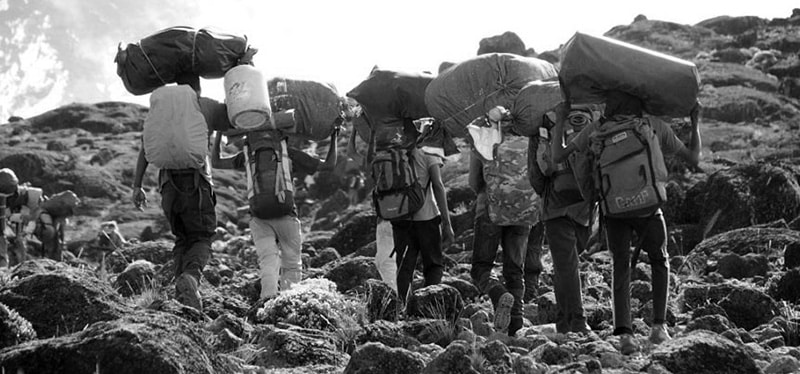Tanzania Safari Tipping: How Much Should You Give and to Whom?
If you’re planning a Tanzania safari, one question that may be lingering in your mind is how much to tip and to whom. Tipping is an important aspect of the culture in Tanzania and can be a way of showing appreciation for the hard work and dedication of those who make your safari experience unforgettable. However, it can be tricky to know the appropriate amount to give and to whom, especially if you’re not familiar with the customs and norms of the country. In this article, we’ll explore the etiquette of tipping on a Tanzania safari, from the guides and drivers to the camp staff and porters. We’ll also provide Tanzania safari tipping guidelines, particularly for the amount you should consider giving, so you can feel confident in showing your gratitude while respecting the local culture. So, let’s dive in and learn all about Tanzania safari tipping!
Understanding the Tipping Culture in Tanzania
Before we dive into the specifics of who to tip and how much, it’s important to understand the tipping culture in Tanzania. Tipping is an expected part of the tourism industry in Tanzania and is often seen as a way to supplement the income of those who work in the service industry. While it’s not mandatory to tip, it’s considered a kind gesture and is appreciated by those who receive it.
It’s worth noting that the minimum wage in Tanzania is relatively low compared to other countries, so tips can make a significant impact on the livelihoods of those who work in the tourism industry. However, it’s important to follow the Tanzania safari tipping guidelines in order to strike a balance between showing your appreciation and not over-tipping, as this can create unrealistic expectations for future visitors and potentially harm the local economy.
In general, it’s recommended to tip in Tanzanian shillings, as this can be more useful to those who receive it than foreign currency. If you do choose to tip in foreign currency, it’s important to make sure the bills are in good condition, as damaged bills may not be accepted.
Who to Tip on a Tanzania Safari
There are several individuals and groups of people who you may encounter on a Tanzania safari and who may be deserving of a tip. It is however of the utmost importance that you follow the Tanzania safari tipping guidelines when giving out tips to any of these deserving individuals. These individuals include safari guides and drivers, hotel and lodge staff, porters and baggage handlers, and those who provide cultural experiences and tours.
It’s worth noting that some safari companies may include tips in the overall cost of the trip, so it’s important to check with your tour operator before tipping to avoid double-tipping. Additionally, some lodges and hotels may have a communal tipping box, which is distributed among all staff members at the end of each month.
How Much to Tip Safari Guides and Drivers
Safari guides and drivers are an essential part of any Tanzania safari experience, as they are responsible for navigating the wilderness and providing insight into the local flora and fauna. It’s recommended that you follow the Tanzania safari tipping guidelines and that you try to tip your guide and driver separately, as they may have different responsibilities and levels of seniority.

For a full-day safari, it’s generally recommended to tip your guide and driver around $10-$15 each per day. For a half-day safari, a tip of $5-$10 per person is appropriate. If you’re on a longer safari trip, it’s recommended to tip your guide and driver around $20-$25 per day.
It’s worth noting that if you have a private guide or driver, you should follow the Tanzania safari tipping guidelines of tipping slightly more than you would when dealing with general guides. This is because they are providing a more personalized experience. Additionally, if your guide or driver goes above and beyond to ensure your safety or comfort, it’s appropriate to tip more generously.
Tipping for Hotel and Lodge Staff
Hotel and lodge staff members are responsible for ensuring your stay is comfortable and enjoyable, from cleaning your room to preparing your meals. It’s recommended to tip hotel and lodge staff at the end of your stay, as this allows you to take into account the quality of service you received throughout your visit.
For hotel and lodge staff, Tanzania safari tipping guidelines generally advise that you tip around $5-$10 per day. This tip can be left in an envelope at the front desk or given directly to the staff member who provided the service. It’s important to note that some lodges and hotels may have a communal tipping box, which is distributed among all staff members at the end of each month.
It’s also worth noting that if you receive exceptional service from a particular staff member, such as a butler or bartender, it’s appropriate to tip more generously to show your appreciation.
Tipping for Porters and Baggage Handlers
If you’re traveling with luggage on your Tanzania safari, you may encounter porters and baggage handlers who assist with carrying your bags. Tanzania safari tipping guidelines generally advise that you tip these individuals around $1-$2 per bag, depending on the weight and distance traveled.
If you’re staying in a hotel or lodge, it’s common for a porter to assist with carrying your bags to your room. It’s appropriate to tip this individual around $1-$2 per bag, or slightly more if the bags are particularly heavy or if the porter went above and beyond to assist you.
Tipping for Cultural Experiences and Tours
If you participate in any cultural experiences or tours during your Tanzania safari, such as visiting a local village or attending a Maasai dance performance, it’s appropriate to follow the Tanzania safari tipping guidelines and tip the individuals who provided the experience.
For cultural experiences and tours, it’s recommended to tip around $5-$10 per person, depending on the length and quality of the experience. If you receive exceptional service or if the experience was particularly memorable, it’s appropriate to tip more generously.
Etiquette and Best Practices for Tipping in Tanzania
When tipping in Tanzania, there are a few etiquette and Tanzania safari tipping guidelines to keep in mind. First, it’s important to always tip with a smile and a thank you, as this shows your appreciation and respect for the hard work of those who provided the service.
It’s also recommended to tip in cash, as this is the easiest and most convenient way for the recipient to receive the tip. If you do choose to tip with a credit card, it’s important to make sure the establishment accepts credit cards and to write “tip” on the receipt to ensure it’s allocated correctly.
Lastly, it’s important to tip in a way that respects the local culture and customs. For example, it’s not appropriate to tip with your left hand, as this is considered impolite in Tanzanian culture. Additionally, it’s important follow the Tanzania safari tipping guidelines and be mindful of the amount you’re tipping, as over-tipping can create unrealistic expectations for future visitors and potentially harm the local economy.
Alternatives to Tipping – Supporting Local Communities and Conservation Efforts
While tipping is an important way to show your appreciation for those who make your Tanzania safari experience unforgettable, there are other ways to support local communities and conservation efforts.
One way to support local communities other than following the Tanzania safari tipping guidelines is to purchase souvenirs and crafts directly from local artisans, rather than from larger souvenir shops. This allows you to support the local economy and directly benefit the individuals who created the crafts.
Additionally, many safari companies and lodges have partnerships with local conservation organizations, allowing visitors to contribute to conservation efforts in the area. This can include activities such as tree planting or wildlife monitoring, which allow you to directly contribute to the preservation of the local ecosystem.
Common Tipping Mistakes to Avoid
While tipping and following the Tanzania safari tipping guidelines is an important part of the Tanzania safari experience, there are a few common mistakes to avoid.
First, it’s important to avoid under-tipping, as this can be seen as disrespectful and may harm the livelihoods of those who work in the service industry. Additionally, it’s important to avoid over-tipping, as this can create unrealistic expectations for future visitors and may harm the local economy.
It’s also important to adhere to the Tanzania safari tipping guidelines and avoid tipping with damaged bills, as these may not be accepted by the recipient. If you’re unsure about the condition of your bills, it’s recommended to exchange them for new bills before tipping.
Lastly, it’s important to avoid tipping in a way that is disrespectful to local customs and norms. For example, it’s not appropriate to tip with your left hand, as this is considered impolite in Tanzanian culture.
Conclusion – Finding the Right Balance Between Cultural Norms and Personal Budget
Tipping is an important aspect of the Tanzania safari experience, allowing you to show your appreciation for those who make your trip unforgettable. However, it’s important to follow the Tanzania safari tipping guidelines in order to strike a balance between cultural norms and personal budget, to ensure you’re tipping appropriately without over-tipping or under-tipping.
By understanding the tipping culture in Tanzania, knowing who to tip and how much, and following the etiquette and best practices for tipping, you can show your gratitude and respect for those who work in the service industry while supporting the local economy and preserving the natural environment.
For more articles related to Tourism in Tanzania, click here!


































